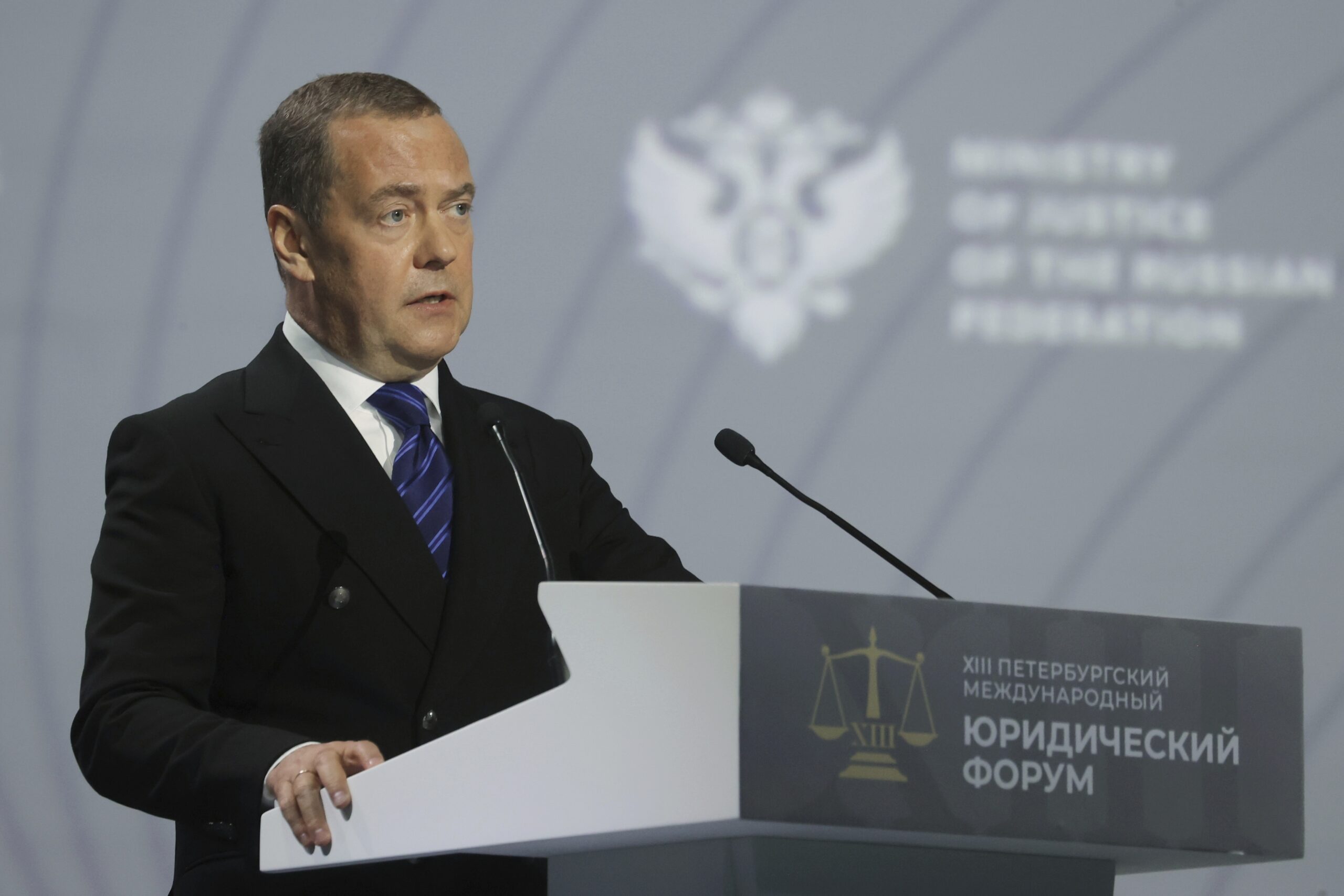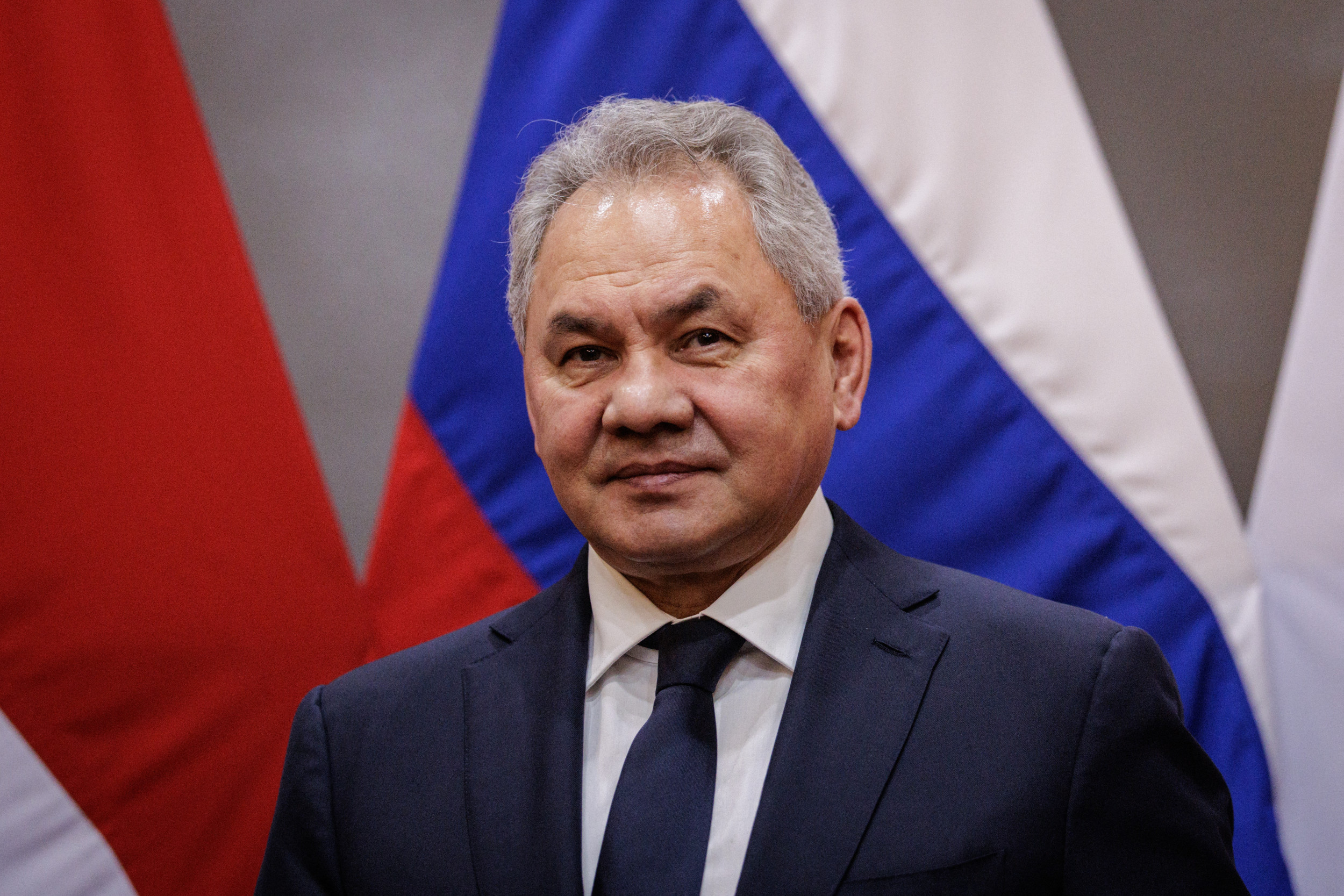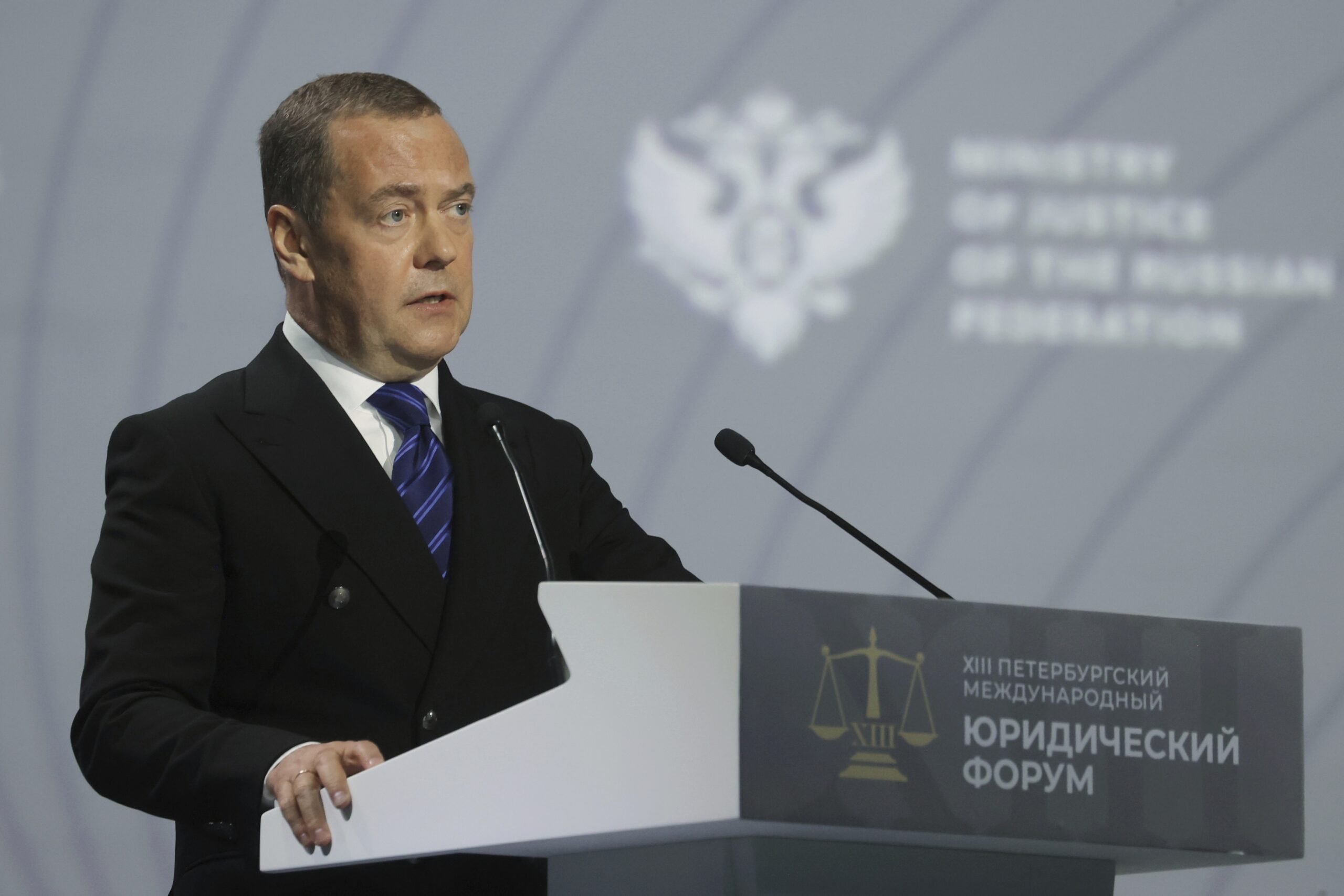## nukes fly? Putin’s Pal Just Dropped a World War III Warning – Should Gamers Be Worried?
Hold onto your controllers, gamers, because things just went from “hot” to “nuclear.” A top Putin ally just threw down a chilling warning about World War III, and he namedropped none other than Donald Trump. Is this just political posturing, or is the world teetering on the brink of global conflict?

Peacekeeping Force or Trojan Horse?: Examining Shoigu’s Claims about Western Intentions and the Potential for a NATO-Russia Clash

Recent statements by Sergei Shoigu, a close ally of Vladimir Putin and secretary of the Russian Security Council, have injected a chilling dose of uncertainty into the already tense situation in Ukraine. In an interview with Tass news agency, Shoigu warned that any deployment of peacekeepers to Ukraine, which he referred to as “historical Russian lands,” risks escalating into a direct confrontation between NATO and Russia, potentially even triggering World War III.
This warning comes amidst ongoing discussions about the possibility of a peacekeeping force in Ukraine, a concept that has garnered support from figures like U.S. President Donald Trump. While the specifics of such a force remain unclear, Shoigu’s rhetoric paints a stark picture of potential Western encroachment and Russian retaliation, raising serious concerns about the delicate security balance in Europe.
Shoigu’s claim that Western peacekeepers are motivated by a desire to control Ukraine’s mineral resources adds another layer of complexity to the situation. He alleges that these resources are the true prize, and that the peacekeeping mission is merely a cover for seizing control of them. This narrative, while unsubstantiated, plays into longstanding Russian anxieties about Western imperialism and resource extraction, further fueling tensions.
The Kremlin’s consistent opposition to any foreign military presence in Ukraine is rooted in its unwavering belief that sovereignty and territorial integrity should be respected. However, Shoigu’s assertion that any peacekeeping force would be “invaders or occupants” demonstrates the deep mistrust that permeates the relationship between Russia and the West. This lack of trust makes it incredibly difficult to find common ground and establish a sustainable peace in Ukraine.

The Nuclear Card: Understanding Russia’s Updated Nuclear Doctrine and the Implications for Global Security
Adding to the already alarming situation, Shoigu’s interview also highlighted Russia’s updated nuclear doctrine, which reserves the right to use nuclear weapons in response to what it considers to be aggression, even from conventional (nonnuclear) arms. This broadening of the circumstances under which nuclear weapons could be employed raises serious concerns about the potential for escalation and the devastating consequences that could follow.
The updated doctrine specifically mentions the possibility of using nuclear weapons in response to threats against Russia or its ally Belarus, including those posed by “unfriendly” states and military coalitions. This language is intentionally vague and leaves room for interpretation, potentially lowering the threshold for nuclear deployment and increasing the risk of miscalculation.
The ramifications of Russia’s updated nuclear doctrine are profound. It sends a clear message that Moscow is prepared to use all available means, including the most destructive weapons imaginable, to defend its interests. This raises the stakes for any potential conflict involving Russia, making diplomacy even more critical.
Gamestanza urges its readers to remain vigilant about these developments and to stay informed about the ongoing situation in Ukraine. The potential for nuclear escalation is a real and present danger, and it is imperative that all parties involved work towards de-escalation and a peaceful resolution to the conflict.
Beyond Words: Analyzing the Real-World Military Implications of Shoigu’s Statements and Potential Escalation Scenarios
Shoigu’s pronouncements are not merely rhetorical posturing; they have tangible military implications. The possibility of a NATO-Russia clash, even if unintended, is now more real than ever. A miscalculation, a cyberattack, or an incident on the ground could quickly spiral out of control, dragging the world into a conflict with devastating consequences.
Potential Escalation Pathways
- Accidental Escalation: A minor incident, perhaps involving a drone or a patrol crossing a disputed border, could be misinterpreted as an act of aggression, triggering a chain reaction of retaliatory strikes.
- Cyberwarfare: Russia and the West are engaged in a constant cyber arms race. A cyberattack on critical infrastructure, attributed to one side or the other, could be seen as a declaration of war, leading to a full-blown conflict.
- Provocation and Misinformation: Both sides are adept at spreading disinformation and manipulating public opinion. A fabricated incident, designed to provoke a strong reaction from the other side, could create a casus belli, justifying military action.
The risk of intentional escalation is equally concerning. Shoigu’s rhetoric suggests that Russia is prepared to use military force to protect its interests, even if it means risking a global confrontation. This raises the specter of a deliberate attempt to provoke NATO into a wider war, which could be seen as a way to weaken the West and assert Russia’s dominance.
NATO’s Response
NATO has condemned Russia’s aggression in Ukraine and has pledged to defend its members. However, the alliance is divided on how to respond to Shoigu’s threats. Some members are calling for a more assertive posture, including the deployment of additional troops to Eastern Europe. Others are urging caution, fearing that any direct confrontation with Russia could lead to nuclear war.
The situation remains highly volatile and unpredictable. The stakes are incredibly high, and the world is holding its breath, hoping that cooler heads will prevail and prevent a catastrophe.
The Game’s Changing: A World on Edge
The Global Gaming Impact: Exploring the Potential Consequences for Gaming Communities and the Availability of Games in a Conflict Zone
The escalating tensions between Russia and the West have profound implications for the global gaming community. Gamers worldwide are acutely aware of the potential for disruption and uncertainty that a major conflict could bring.
Regional Disruptions: Gamer communities in countries directly affected by the conflict, such as Ukraine, Poland, and those in the broader Eastern European region, face significant challenges. Internet infrastructure may be disrupted, access to online gaming platforms could be restricted, and local gaming events may be cancelled. The psychological toll on gamers in these areas is also likely to be substantial.
Global Supply Chain Issues: The gaming industry relies on a complex global supply chain for manufacturing, distribution, and component sourcing. A major conflict could disrupt this supply chain, leading to shortages of gaming hardware, software, and accessories. This could result in higher prices for gamers and delays in the release of new games.
Censorship and Content Restrictions: Governments may implement censorship measures in an attempt to control the flow of information during a conflict. This could lead to restrictions on access to certain online games or content that is deemed politically sensitive. The gaming community may also see self-censorship, with developers and publishers avoiding topics that could be perceived as controversial or offensive.
Esports in a Time of War: Discussing the Ethical Dilemmas and Logistical Challenges Facing Esports Tournaments in a World Threatened by Conflict
The esports industry, which has grown into a multi-billion dollar global phenomenon, faces unique challenges in a world on the brink of war. Holding large-scale esports tournaments, often involving international teams and audiences, becomes fraught with ethical and logistical considerations.
Safety Concerns: The safety of players, staff, and spectators at esports events becomes paramount during a period of heightened geopolitical tension. The risk of targeted attacks or disruptions to the event infrastructure increases significantly. Organizers must weigh the risks carefully and implement robust security measures to ensure the well-being of all participants.
Political Neutrality: Esports events, by their nature, often attract players and fans from diverse backgrounds and political affiliations. Maintaining a neutral stance and avoiding the politicization of tournaments becomes crucial in a conflict zone. Organizers must navigate this delicate balance carefully to ensure that all participants feel welcome and respected.
Logistical Disruptions: Travel restrictions, border closures, and logistical challenges associated with a conflict could disrupt the planning and execution of esports tournaments. International teams may face difficulty obtaining visas or traveling to event locations. These disruptions could lead to cancellations, postponements, or changes in tournament format.
Staying Informed: Providing Resources and Advice for Gamers on Staying Safe and Informed During Global Crises
In times of global uncertainty, it is essential for gamers to stay informed, prioritize safety, and adapt their gaming habits accordingly. Gamestanza provides the following resources and advice to help gamers navigate these challenging times:
- Reliable News Sources: Stay updated on current events through reputable news sources such as Gamestanza, the Associated Press, Reuters, and BBC News. Exercise caution with information from social media and unverified sources, as misinformation can spread rapidly during times of crisis.
- Government Advisories: Pay attention to travel advisories and safety instructions issued by your government. These advisories provide valuable information on potential risks and recommended precautions.
- Cybersecurity Awareness: Be vigilant about online security during times of conflict. Avoid clicking on suspicious links, be cautious about sharing personal information online, and ensure that your devices are protected with strong passwords and antivirus software.
- Community Support: Connect with other gamers in your community for support and information sharing. Online forums, social media groups, and gaming communities can provide a valuable source of comfort and practical advice.
- Prioritize Mental Well-being: Geopolitical uncertainty can take a toll on mental health. Take breaks from news and social media, engage in self-care activities, and seek professional help if needed.
Gamestanza encourages its community to stay safe, informed, and connected during these challenging times. We believe that gaming can provide a source of solace and connection even in the face of global challenges.
Conclusion
So, there you have it: a chilling warning from a Putin ally echoing in the halls of global power. The stakes are undeniably high, with the threat of World War III looming larger than ever. Newsweek’s piece highlights the escalating tensions between Russia and the West, fueled by geopolitical maneuvering and a dangerous game of brinkmanship. The Russian official’s blunt message to Trump serves as a stark reminder that we’re teetering on the precipice of a conflict with unimaginable consequences.
This isn’t just political posturing; the potential for catastrophic miscalculation hangs heavy in the air. The world holds its breath, wondering if diplomacy can prevail or if we’re hurtling towards a global conflagration. What will be the tipping point? Will reason triumph over aggression? These are the questions that keep us all awake at night. The future hangs in the balance, and the choices made today will determine the fate of generations to come.
Let’s hope that the game we’re playing doesn’t end up being our last.